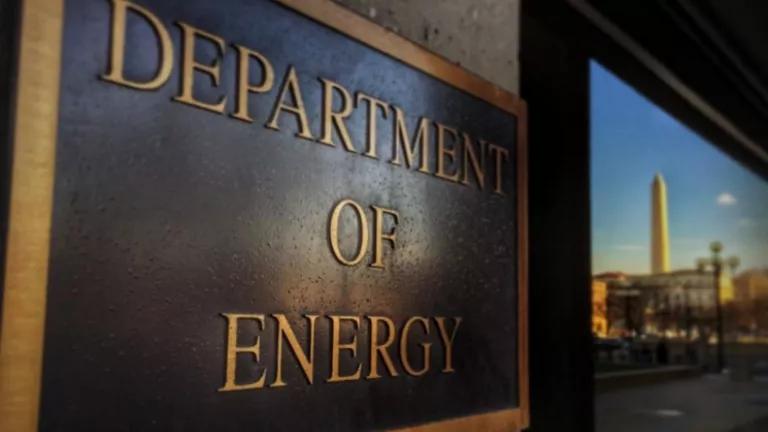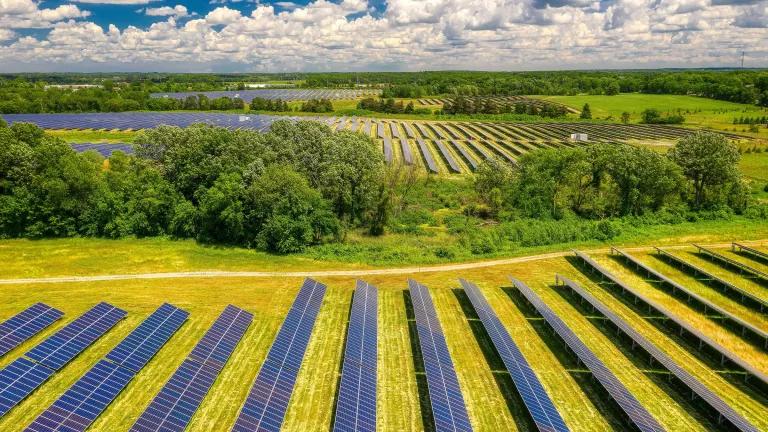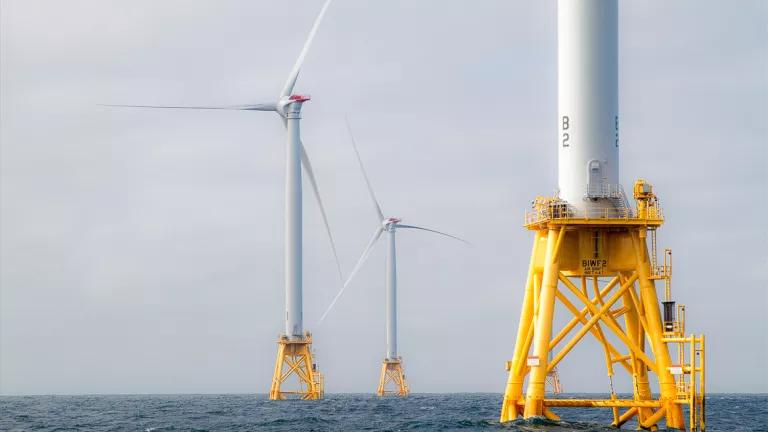
Today the Department of Energy (DOE) settled our lawsuit over the agency's failure to meet 20 legal deadlines to review and update energy efficiency standards. As part of the settlement, which has already been approved by the court, DOE has agreed to a schedule to review these regulations and, as appropriate, update them to improve efficiency requirements. Based on a 2020 report by the Appliance Standards Awareness Project examining potential carbon savings from efficiency standards, we estimate that updated standards for the products at issue in this case could save between approximately 970 and 1800 million metric tons of carbon through 2050. (The exact number depends on how the electric grid evolves over time.) Over the same time period, updated standards would save consumers over 650 billion dollars (in 2019 dollars) in lower utility bills.
As missed deadlines piled up under the Trump administration, NRDC brought the case in November 2020, along with Public Citizen, the Center for Biological Diversity, the Consumer Federation of America, the Massachusetts Union of Public Housing Tenants, and Earthjustice. A coalition of over a dozen states and cities, led by the State of New York, filed a companion suit which the settlement would also resolve.
Background
Under the Energy Policy and Conservation Act, DOE is required to establish and periodically review minimum energy efficiency standards. These standards, which vary by product, set the minimum efficiency (or in some cases, maximum energy consumption) that products must meet in order to be legally sold in the United States. By law, these standards must save energy, be cost-effective, and be technologically feasible for manufacturers to meet.
These standards cover a wide array of products, from dishwashers and clothes dryers to large, commercial scale air conditioners. For even the simplest product, there can be a dizzying number of factors that go into a purchase decision. Efficiency standards help simplify this process. They ensure that when consumers purchase new products, they are getting ones that are good for both their pocketbook and the environment, not old, energy guzzling ones. (For more background on energy efficiency standards, as well as this case, please read this blog by my colleague, Lauren Urbanek.)
Settlement
As part of the settlement filed today, DOE has agreed to a schedule, shown below, to meet is statutory obligations. This settlement does not, in itself, guarantee that DOE will actually issue revised standards. In other words, it is possible for DOE to review a standard and determine no updates are warranted if, e.g., there are no additional energy savings to be had, or additional efficiency improvements would not be cost-effective. However, for the vast majority of products there is publicly available information – typically published by DOE itself! – showing that substantial, cost-effective, energy savings are achievable.
The dates in the table below represent the date by which DOE will either: 1) publish a final regulation updating a standard; or 2) publish a final rule determining that an update is not justified.
|
Product Category |
Deadline |
| Computer Room Air Conditioners | June 30, 2023 |
| Pool Heaters | June 30, 2023 |
| Commercial Water Heaters | July 30, 2023 |
| Room Air Conditioners | July 30, 2023 |
| Dedicated Outdoor Air Systems | August 31, 2023 |
| Microwave Ovens | August 31, 2023 |
| Variable Refrigerant Flow Air Conditioners and Heat Pumps | August 31, 2023 |
| Non-Weatherized and Mobile Home Gas Furnaces | September 30, 2023 |
| Residential Clothes Dryers | February 29, 2024 |
| Residential Refrigerators and Freezers | December 30, 2023 |
| Conventional Cooking Products | January 31, 2024 |
| Residential Clothes Washers | February 29, 2024 |
| Electric Motors | April 30, 2024 |
| Residential Water Heaters | April 30, 2024 |
| Distribution Transformers | June 30, 2024 |
| Residential Dishwashers | June 30, 2024 |
| Furnace Fans | October 31, 2024 |
| Oil Furnaces and Weatherized Gas Furnaces | October 31, 2024 |
| Walk-In Coolers and Freezers | November 30, 2024 |
| Commercial Refrigeration Equipment | November 30, 2024 |
Conclusion
Energy efficiency is a true win-win: it saves consumers money while helping avoid climate-warming pollution. Simply put, the benefits of DOE’s efficiency standards program are simply too immense to ignore. That’s why it is vital that DOE get back on track, catching up on previously missed deadlines. This settlement will help DOE do just that. (And don’t worry – we fully intend to push DOE to stay current with upcoming deadlines not subject to this suit!)




